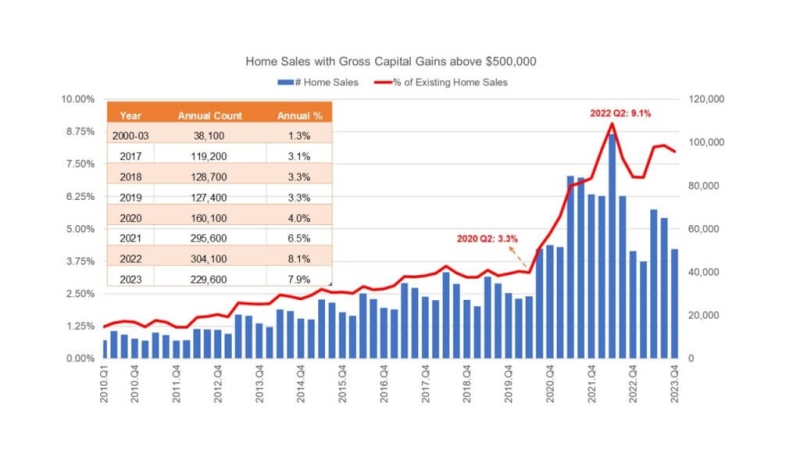Advertisement
Freddie Mac: 33 Percent of Refi Homeowners Pay Down Debt in Q3 of 2010

Freddie Mac has released a survey that finds that 33 percent of homeowners who refinanced their first-lien home mortgage have lowered their principal balance by paying-in additional money at the closing table in the third quarter of 2010. This is the second highest "cash-in" share since Freddie Mac began keeping records on refinancing patterns in 1985. The revised cash-in share in the second quarter was 23 percent.
"Cash-out" borrowers are defined as those who increased their loan balance by at least five percent, represented 18 percent of all refinance loans; this is the lowest cash-out share since the analysis began in 1985. The higher cash-in share, in combination with low cash-out refinancing activity brought the net dollars of home equity converted to cash to the lowest level in 10 years. In the third quarter, $7.4 billion in net home equity was cashed out during the refinance of conventional prime-credit home mortgages, down from $9.4 billion in the second quarter and less than 10 percent of the peak cash-out volume of $84 billion in the second quarter of 2006.
"Interest rates on 30-year fixed-rate mortgages dropped during the third quarter to levels not seen since the early 1950s," said Frank Nothaft, Freddie Mac vice president and chief economist. "Borrowers are responding to the low rates, with over 80 percent of new loan applicants looking for a refinance.
The primary causes of the decline in cash-out refinancing were reduced home prices and tighter underwriting standards for loan-to-value (LTV) ratios. Among the refinanced loans in Freddie Mac's analysis, the median appreciation of the collateral property was a negative three percent over the median prior loan life of 3.8 years. The median interest rate reduction stood at approximately one percentage point, or at least 18 percent. Over the first year of the refinance loan life, these borrowers will save over $1,400 in principal and interest payments on a $200,000 loan.
These estimates come from a sample of properties on which Freddie Mac has funded two successive loans, and the latest loan is for refinance rather than for purchase. The analysis does not track the use of funds made available from these refinances.
"When rates fall to new lows, we typically see more 'rate and term' refinancers who are looking only to reduce their interest payments and relatively fewer cash-out borrowers," said Nothaft. "But now we're also seeing a very large share of borrowers reduce their mortgage debt when they refinance. Consumer debt across the board is down since the start of the recession, with non-mortgage consumer debt falling more than 5 percent since 2008, according to the Fed."
For more information, visit www.Freddiemac.com.
About the author





